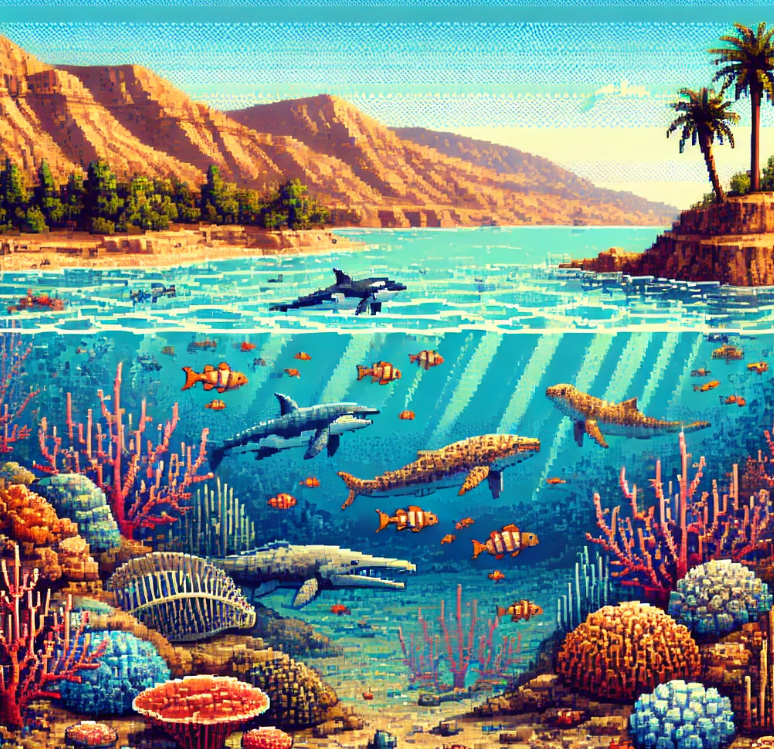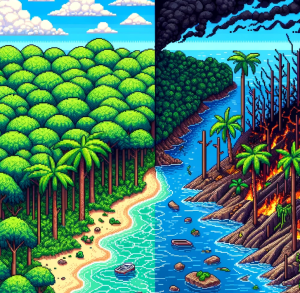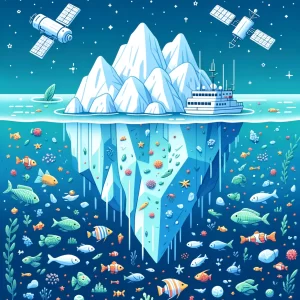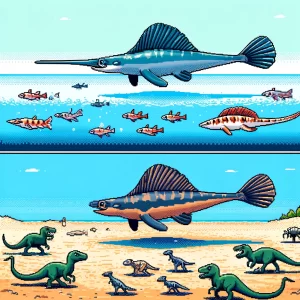
The Ancient Climate Crisis: How a Mediterranean Catastrophe Reshaped Marine Life
Imagine standing on the shores of a prehistoric Mediterranean Sea, its waters teeming with life. Bright corals stretch across vast reefs, fish dart between rocky outcrops, and even whales pass through its deep blue waters. Now, fast forward a few million years, and that same sea is on the brink of catastrophe. The vibrant ecosystem is about to face a climate disaster so severe, it will transform this iconic basin forever. This was the Messinian Salinity Crisis—a dramatic environmental event that reshaped life in the Mediterranean 6 million years ago.
The Mediterranean: A Marine Battleground
Millions of years ago, the Mediterranean Sea was more than just a body of water. It was part of the Western Tethys Ocean—a tropical hotspot buzzing with life. But that all began to change during the Late Miocene epoch, when the Mediterranean became cut off from the Atlantic Ocean. The sea, once connected to the vast Indian Ocean, now found itself as an isolated basin, vulnerable to every shift in climate. Global temperatures started to cool, sea levels fluctuated, and the Mediterranean’s once-constant connection to the Atlantic Ocean weakened.
The sea’s isolation set the stage for a dramatic decline in biodiversity. Species that had thrived for millennia were now forced to adapt or perish, leading to one of the most significant turnovers in marine life history.
How a Salinity Crisis Transformed Marine Life
The Messinian Salinity Crisis (MSC) wasn’t just an environmental blip. It was a colossal event that nearly dried up the Mediterranean. Starting around 5.96 million years ago, water flow from the Atlantic slowed to a trickle, causing the sea to evaporate at alarming rates. Salt deposits, kilometers thick, began to form at the sea’s bottom. Imagine a vast, once-thriving sea now transforming into a barren salt flat.
Marine species, from corals to tiny plankton, faced an existential crisis. Some species, like the warm-water coral Porites, which once thrived in tropical conditions, disappeared entirely. This extinction wasn’t just about survival of the fittest—it was about species learning to cope with extreme changes in temperature and salinity.
Species Turnover: Out with the Old, In with the New
One of the most surprising discoveries from this period is the sheer turnover of species. Over 30% of the marine life that existed before the MSC vanished, only to be replaced by new species after the Mediterranean finally reconnected with the Atlantic 5.33 million years ago. This turnover wasn’t just about species dying out—it was about ecosystems adapting and evolving in a way that has rarely been seen since.
During the crisis, high levels of salinity caused dramatic changes in marine biodiversity. The reef-building corals, which had once formed the backbone of the Mediterranean ecosystem, were wiped out, never to return. Only deep-water corals, which could survive the cold, nutrient-poor waters, remained after the crisis. But it wasn’t just the big species that were affected. Tiny plankton, essential to the marine food web, also faced mass extinction, particularly in the warmer western Mediterranean waters.
Climate Change on a Grand Scale
While the Messinian Salinity Crisis is long past, its lessons are strikingly relevant today. Just as in the Miocene era, modern Mediterranean marine life faces challenges from rising temperatures and fluctuating salinity. This semi-enclosed basin is now one of the most rapidly warming regions on Earth, grappling with alien species invasions and pollution from human activity.
The Mediterranean’s fate during the MSC offers a cautionary tale: ecosystems are resilient, but even they have limits. When connectivity to larger oceans is lost, or climate swings become too extreme, the balance tips. While life adapted and bounced back after the crisis, it was never the same. The species that re-emerged were different, and the marine ecosystem they formed had shifted forever.
What Can We Learn from This Ancient Event?
The Messinian Salinity Crisis wasn’t just about what happened to a sea 6 million years ago—it’s a reminder that our planet’s climate can swing wildly, with devastating consequences for biodiversity. The crisis teaches us how interconnected climate and marine ecosystems are. The restriction of the Mediterranean’s connection to the Atlantic, combined with global cooling, created a perfect storm that transformed marine life.
As we look at our current climate crisis, the MSC provides a powerful example of the long-term impacts of environmental change. It shows that while ecosystems can recover, they are often fundamentally altered in the process. The disappearance of coral reefs and the dramatic turnover in species offer a stark warning: when nature is pushed to its limits, recovery comes at a cost.
Join the Conversation
- How do you think modern climate change might mirror the impacts of the Messinian Salinity Crisis on marine ecosystems today?
- What steps can we take to ensure that our oceans remain resilient in the face of growing climate challenges?
Feed Your Curiosity
Discover the latest scientific research and inspiring discoveries with ‘This Week in Science’! Perfect for educators and avid learners, our free weekly newsletter is a rich source of knowledge to enhance your teaching and learning journey. Subscribe now! If you liked this blog, please share it! Your referrals help This Week in Science reach new readers.



